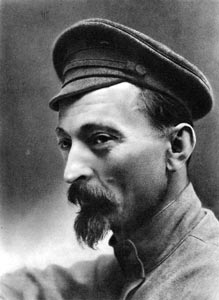For Bush, War Anguish Expressed Privately
For Bush, War Anguish Expressed Privately
By Peter Baker
Washington Post Staff Writer
Monday, September 25, 2006;
FALMOUTH, Maine -- They sat on two frayed chairs in a teacher's lounge, the president and the widow, just the two of them so close that their knees were almost touching. She was talking about her husband, the soldier who died in a far-off war zone. Tears rolled down her face as she mentioned two children left fatherless. His eyes welled up, too. He hugged her, held her face, kissed her cheek. "I am so sorry for your loss," he kept repeating. She told him she considers him responsible for her husband's death and begged him to bring home the troops. "It's time to put our pride behind us and stop the bleeding, for all of us," she recalled saying. The president demurred, unwilling to debate a mourning woman. "We see things differently," he said.
The two sides of Bush as commander in chief can be hard to reconcile. His public persona gives little sense that he dwells on the costs of war. He does not seem to agonize as Johnson did, or even as his father, George H.W. Bush, did before the Persian Gulf War. While he pays tribute to those who have fallen, the president strives to show resolve and avoid displays that might be seen as weak or doubting. His refusal to attend military funerals, while taking long Texas vacations and extended bicycle rides, strikes some critics as callous indifference.
Yet the private Bush comes across differently in the accounts of aides, friends, relatives and military family members who have met with him. The first question Bush usually asks national security briefers in the Oval Office each morning is about overnight casualties, aides say, and those who show up for the next round of meetings often find him still stewing about bad news from Iraq.
If he does not show that publicly, it's in keeping with a White House practice of not drawing attention to the mounting costs of the wars in Afghanistan and Iraq, which have killed more than 3,000 U.S. troops and tens of thousands of civilians. Advisers worry that sending the wrong signal would further sap public will and embolden the enemy and Bush's critics. Aides say that Bush does not attend military funerals because the presidential entourage would disrupt solemn events and that, out of respect, the media have been banned from photographing coffins arriving at Dover Air Force Base. But they also know it would focus a spotlight on the price of the president's policies.
###
Oh, if it weren't for those meddlesome advisers and aides! Their constant meddling means the President can never break down and cry in public about the deaths he's caused! And Bush's daily question about how Iraq is going doesn't indicate a man concerned that his party is going to get its ass kicked in November, but the deep musings of a 
President Bush hugs Anita Kukkola after presenting her son, Pfc. Jason Kukkola of Fountain Hills, Ariz., with a Purple Heart at Walter Reed Army Medical Center. In both the preceeding story and in this photo, all Real Americans will note exactly how privately the President is expressing his war anguish. No one was present except the soldier, his mother, the President and the photographer and the press corps and maybe a few major campaign contributors and possibly a couple of energy corporation CEOs eager for face time with The Decider.



